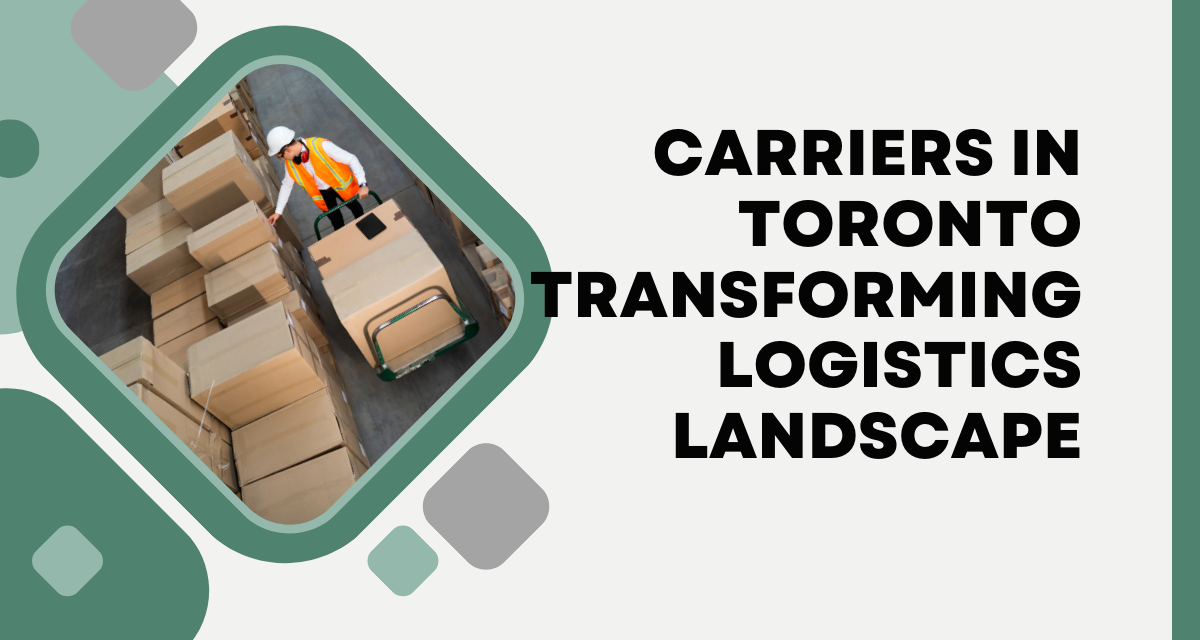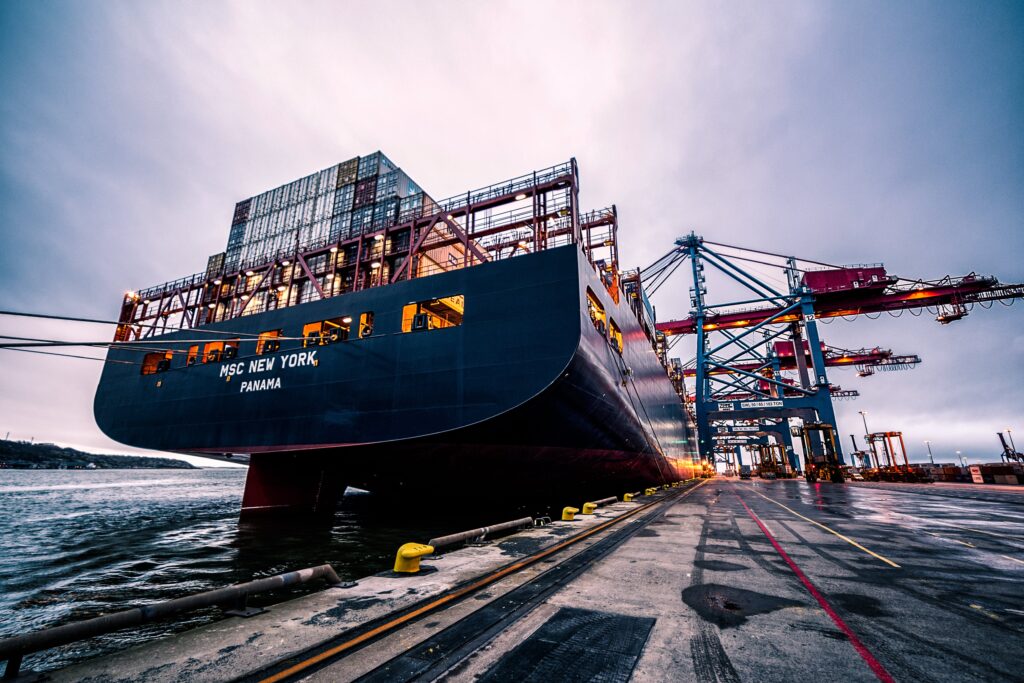Kesnoh news
Blog
Driving Success: Carriers in Toronto Transforming Logistics Landscape

Welcome to the bustling city of Toronto, where a revolution is taking place in the world of logistics. As technology continues to advance and consumer demands skyrocket, carriers are stepping up their game to meet these challenges head-on.
In this blog post, we will explore how these brilliant minds are reshaping the landscape of transportation and driving success like never before. So fasten your seatbelts and join us on this thrilling ride through Toronto’s transformative logistics industry!
Introduction to the logistics industry in Toronto
Toronto, also known as the “Hollywood North” of Canada, is not only a hub for entertainment and culture but also a major player in the logistics industry. With its strategic location on the shores of Lake Ontario and well-developed transportation infrastructure, Toronto has become a prime destination for global trade and commerce.
The logistics industry in Toronto encompasses a wide range of activities such as warehousing, distribution, transportation, and supply chain management. This industry plays a crucial role in ensuring the smooth flow of goods and services within Canada as well as across international borders.
One of the main factors contributing to the growth of this industry in Toronto is its world-class transportation system. The city has access to multiple modes of transportation including road, rail, air, and waterways. The Greater Toronto Area (GTA) is home to two major airports – Pearson International Airport and Billy Bishop Toronto City Airport – which handle millions of tons of cargo annually. Additionally, the city is connected to other major Canadian cities through an extensive network of highways and railways.
Overview of traditional carriers and their challenges
Traditional carriers have been a key component of the logistics industry for decades, providing essential transportation services for businesses across various sectors. However, as technology continues to advance and consumer expectations evolve, these carriers are facing new challenges that are transforming the logistics landscape in Toronto and beyond.

One of the main challenges facing traditional carriers is the rise of e-commerce. With more and more consumers choosing to shop online, there has been a significant increase in demand for fast and efficient deliveries. This has put pressure on carriers to adapt their operations to meet this growing demand, while still maintaining profitability.
Another challenge faced by traditional carriers is the increasing complexity of supply chain management. As supply chains become more globalized and interconnected, coordinating shipments across multiple modes of transport, countries, and regulations can be a daunting task for carriers. This requires them to invest in advanced technologies and systems to ensure smooth operations and timely delivery.
The rise of technology in the logistics industry and its impact on carriers
The logistics industry has undergone significant changes in recent years, with the rise of technology playing a major role in its transformation. In particular, carriers in Toronto have embraced these advancements and are leading the way in shaping the future of logistics.
Technology has not only improved efficiency and productivity but also revolutionized the way carriers operate, making it easier for them to meet customer demands and stay competitive in a rapidly evolving market. Let’s dive deeper into some of the key ways technology is impacting carriers in Toronto.
- Real-Time Tracking and Monitoring Systems:
One of the most significant technological advancements that have greatly impacted carriers is real-time tracking and monitoring systems. These systems use GPS technology to provide accurate location information about shipments at any given time. Carriers can now easily track their trucks’ movements, monitor traffic conditions, and make necessary adjustments in real-time to ensure timely delivery.
This level of visibility enables carriers to provide customers with accurate delivery estimates, improving their overall service quality. It also allows for better inventory management as companies can track their goods from point A to point B seamlessly.
- Automation:
Automation has been a game-changer for many industries, including logistics. Carriers are increasingly adopting automated processes to streamline their operations and reduce human error significantly. Automated warehouses equipped with robotics have made order fulfillment faster and more efficient than ever before.
Benefits of technology-driven logistics for carriers
In recent years, the logistics industry has seen a significant shift towards technology-driven operations. This trend is especially evident in carriers operating in Toronto, who have been quick to embrace new technologies and tools to improve their services.
In this section, we will explore the various benefits of technology-driven logistics for carriers, and how it is transforming the landscape of logistics in Toronto.
- Improved Efficiency: One of the most significant benefits of technology-driven logistics for carriers is improved efficiency. With the help of advanced software and automation tools, carriers can streamline their processes and eliminate manual tasks. This not only saves time but also reduces the chances of errors and delays. For example, route optimization software can help carriers plan and optimize their delivery routes, saving them time and money on fuel costs.
- Real-Time Tracking: Another crucial benefit of technology-driven logistics for carriers is real-time tracking capabilities. With GPS-enabled devices installed on trucks and other vehicles, carriers can track shipments in real-time from start to finish. This allows them to monitor delivery status accurately, make informed decisions regarding route changes or potential delays, and provide customers with accurate estimated arrival times.
Challenges faced by carriers in adopting new technology
The logistics industry is constantly evolving, driven by new technologies that promise increased efficiency and cost savings. To stay competitive and meet the demands of their customers, carriers in Toronto are increasingly adopting new technology in their operations.
However, this adoption process comes with its own set of challenges that carriers must navigate in order to successfully implement these changes.
One major challenge faced by carriers in adopting new technology is the initial investment required. As with any business decision, there is a financial risk involved in implementing new technology. This can be especially daunting for smaller carriers or those with limited resources. The cost of purchasing new equipment and software, as well as training employees on how to use it, can add up quickly and may require a significant upfront investment.
Another challenge is the learning curve associated with using new technology. This can be particularly difficult for long-established carriers who have been using traditional methods for years. For example, switching from paper-based systems to digital platforms may require drivers and other employees to learn entirely new processes and workflows. It may also take some time for them to become comfortable with the new technology, which could potentially slow down operations during the transition period.
Navigating the complexities of logistics is our expertise, and we understand the importance of cost-effectiveness in every shipment. By clicking on our “Get a Quote” page or contacting our customer service directly, you initiate a seamless process toward obtaining a personalized quote that aligns with your budget and expectations.
The future outlook for carriers in Toronto’s logistics landscape
The logistics landscape in Toronto is constantly evolving and carriers play a crucial role in this transformation. As we look into the future, it is clear that carriers will continue to shape and drive success in the industry.
In this section, we will explore the key factors that will impact the future outlook for carriers in Toronto’s logistics landscape.
- Technological Advancements: With advancements in technology, the logistics industry has seen significant changes over the years. From automation to artificial intelligence, these innovations have greatly improved efficiency and productivity for carriers. In the future, we can expect to see even more advanced technologies being implemented by carriers in Toronto. This could include the use of drones for delivery, autonomous vehicles for transportation and blockchain technology for supply chain management.
- E-commerce Boom: The rise of e-commerce has had a major impact on the logistics landscape, especially in urban areas like Toronto where online shopping is increasingly popular. This trend is expected to continue as more consumers turn towards online shopping due to its convenience and ease. Carriers will need to adapt to this growing demand and find innovative ways to efficiently handle last-mile deliveries within busy urban environments.
